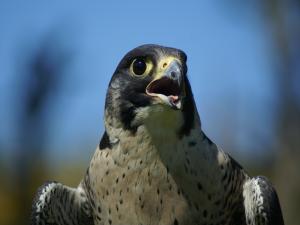
By Rebecca Black
Noise pollution is threatening the survival of more than 100 species, researchers have found.
Academics from Queen's University Belfast found that noise affects the behaviour of a wide range of species including amphibians, birds, fish, mammals and reptilians.
This meta-study, published on Wednesday in Biology Letters, provides the first quantitative evidence intended for legislative bodies to regulate noise pollution more effectively, researchers said.
The study analysed the effects of noise on seven groups: amphibians, arthropods, birds, fish, mammals, molluscs and reptiles.
Dr Hansjoerg Kunc, from the School of Biological Sciences at Queen's, said they found clear evidence that noise pollution affects all of the seven groups of species.
The research highlighted a number of threats caused by noise pollution to a range of species that could have implications for survival and population.
Many species of amphibians, birds, insects and mammals communicate by producing acoustic signals. This includes vital information such as choosing a mate or warnings.
Many also rely on sounds to hunt, and the study found that noise pollution makes it more challenging to hear and therefore find their prey, forcing them to invest more time in sourcing food, which could lead to a decline in these species.
The meta-study warns that if noise pollution reduces the ability to communicate this vital information it will impact on their survival.
Researchers also found that noise pollution extends to the sea, with the sound of ships potentially making it more difficult for fish larvae to find suitable reefs.
The study also looked at the impact of noise pollution on the natural migration of animals and found that changes in noise-polluted areas may affect where birds will choose to live.
Dr Kunc said strategies should be developed to protect animals from noise pollution.
"This large scale quantitative study provides significant evidence that noise pollution must be considered as a serious form of man-made environmental change and pollution, illustrating how it affects so many aquatic and terrestrial species," he said.
"Noise must be considered as a global pollutant and we need to develop strategies to protect animals from noise for their livelihoods."


 Swann refuses to rule out resigning if budget is not changed
Swann refuses to rule out resigning if budget is not changed
 Fresh inquests ordered into deaths of 15 killed in McGurk’s bomb blast
Fresh inquests ordered into deaths of 15 killed in McGurk’s bomb blast
 Trial ends after man accused of murder of young showjumper is found dead
Trial ends after man accused of murder of young showjumper is found dead
 A brief hearing and chaotic scenes as Donaldson makes first court appearance
A brief hearing and chaotic scenes as Donaldson makes first court appearance